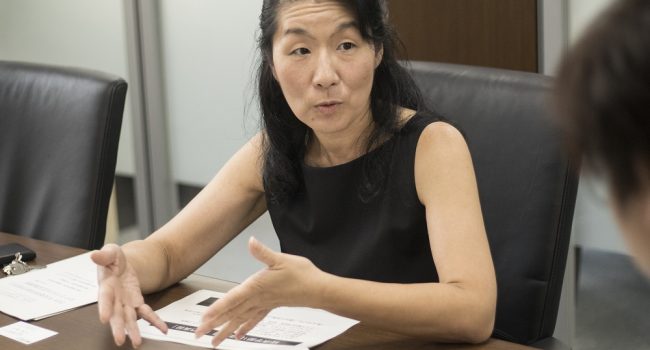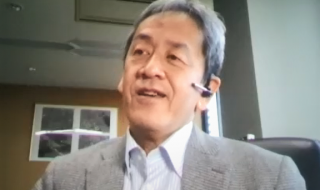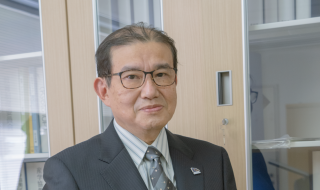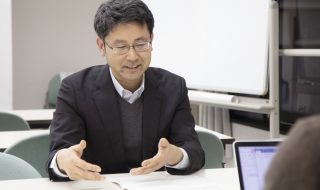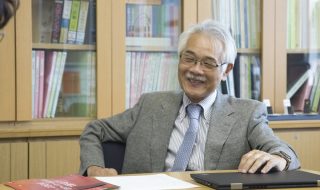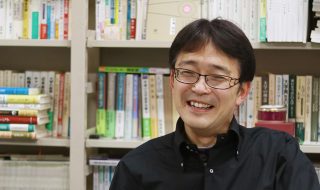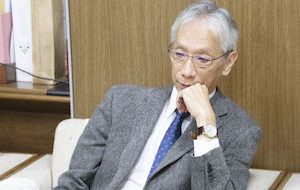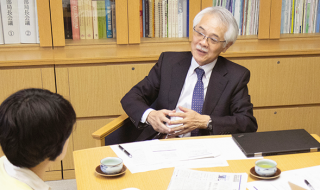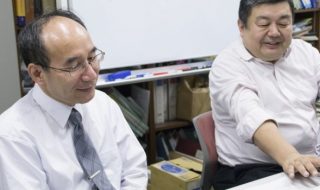“Introductory Seminar ” Approach Taken for First-Year Education at the Faculty of Economics
Could you explain events that led to the course “Introductory Seminar”?
The idea was not mine. The course began in 2009, before I took on my current post. For some years, the Faculty of Economics has given six types of entrance exams [science, humanities or social science (general), essay (currently, Unique Entrance Examination ), special selection for privately-financed international applicants, third-year transfer, and special selection for graduates from schools located in countries other than Japan]. I’ve heard that when the Introductory Seminar course started, classes and lecture content were determined separately for students who took different entrance exam courses. I’ve heard also that the course was intended partly as supplementary lectures in science for those who enrolled having passed an essay entrance exam.
The purpose could have been to adapt lectures to the characteristics of students who took different entrance exams.
Well, from several years ago, Introductory Seminar has incorporated group work to encourage students who have passed different entrance exams to establish good relationships and foster cooperativeness.
How do you choose the ten teachers in charge of the classes?
In principle, instructors who are willing to teach the subject are in charge.
It is interesting that the ten teachers in charge use their respective syllabi. Do they add their respective tones to their syllabi?
The syllabi are uniform. However, in many cases, teachers add their specialized knowledge. It was suggested to make the content uniform. However, as of now, we agree that the subject offers basic information, while drawing on each teacher’s specialized knowledge.
In this case, Introductory Seminar is likely to offer basic information for specialized subjects. Is there any minimum content commonly offered?
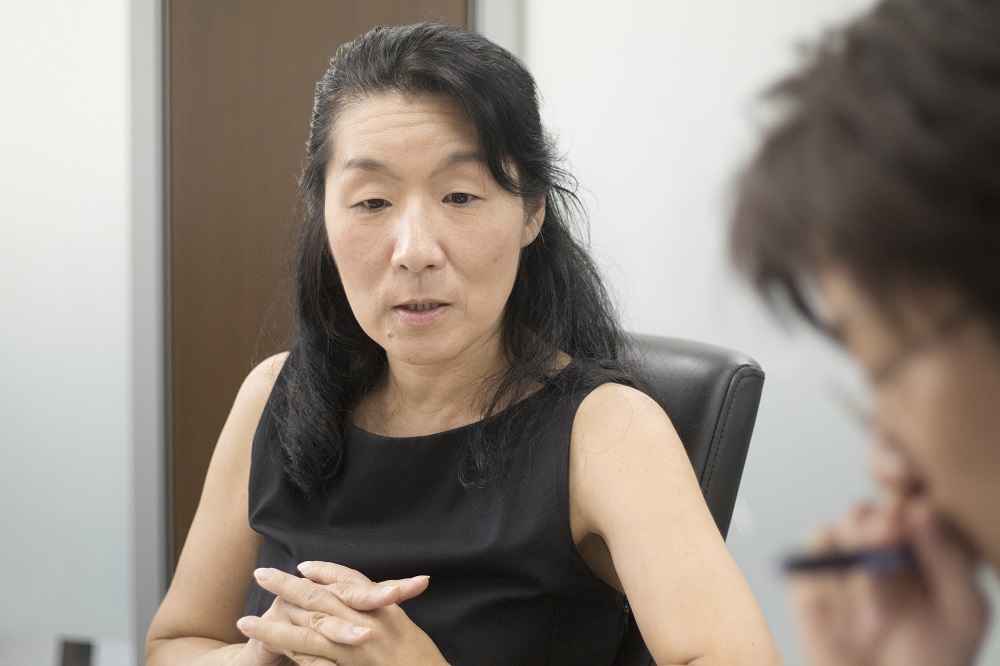
Fostering report preparation skills is an end goal of the subject. More specifically, using the books Academic Skills and Treatise Classroom, students are trained to acquire the skills required for searching previous or informative research, incorporating it without plagiarizing, and preparing to write reports for specialized subject units. Moreover, as I have just said, incorporating group work is a minimum requirement. In group work, it is important to provide opportunities for students to make presentations.
This may be termed so-called study skills. Is there any restriction concerning the number of opportunities?
This is also left to the discretion of each teacher. I give opportunities for students to make a presentation twice during group work.
How do you ensure coordination between teachers?
In May or June each year when the seventh exercise class is offered, the teachers exchange information, such as their progress with exercises and how each student is learning to ensure coordination. Impressions of newly appointed teachers are also shared. As a result of this coordination, the teachers agreed that if a student is absent from two consecutive classes, the teacher in charge is obliged to contact the student by email. This is based on a teacher’s remarks about the effectiveness of doing so.
How has it been effective since the introduction of the obligation?
Students who failed Introductory Seminar tend to be unable to earn credits for specialized subjects in economics until they become third- or fourth-year students. This is clear from analysis of results obtained so far. After sending an email, as you imagine, the teacher in charge sometimes receives no reply from the student. If this happens, a clerical worker or I, as the Director of the International Student Support Room, in addition to the teacher in charge, contact the student. It is believed that these attempts to provide care early are effective in encouraging the student, who may be sleeping late in his or her room, to attend class or in preventing the student from becoming alienated.
How many students fail to obtain the credit each year?
For Introductory Seminar, the number has been clearly decreasing due to various efforts. Last year, more than 90% of the students earned the credit. The teachers are mindful in providing care to students. Students receive explanations that if they fail to obtain the credit for Introductory Seminar, they will be likely to fail other credits too. Students’ awareness has probably changed owing to this explanation. In recent years, students who failed to obtain the credit are limited to those who failed to submit the final report. In academic year 2018, three students failed. They were long-term absentees.
I think it is important for students to build mutual relationships. What are your tactics in this regard?
I believe they can make a good start when they are interested in and react to each other’s stories. I ask each student in my class to ask one or more questions when someone introduces him or herself to the class or makes a presentation in Introductory Seminar. For increased presentation opportunities, I request the students to deliver speeches even after Golden Week (April 29 to early May). They can talk about any topic, such as a movie, returning home, or a visit to a resort. The purpose is to encourage them to find some points they can share with their classmates.
It is a good way of building relationships to start with favorites and common ground. It seems that not so many teachers think relationships built that way lead to successful academic achievements.
In my opinion, loneliness makes it difficult for students to get through four years. Seminars are not compulsory (at the Faculty of Economics). Therefore, for students who are not affiliated with any club or voluntary circle, it seems particularly difficult to find a place on campus.
Do you think these efforts are effective for protecting students from isolation? I’d like to hear your perspective as the Director of the International Student Support Room (at the Faculty of Economics).
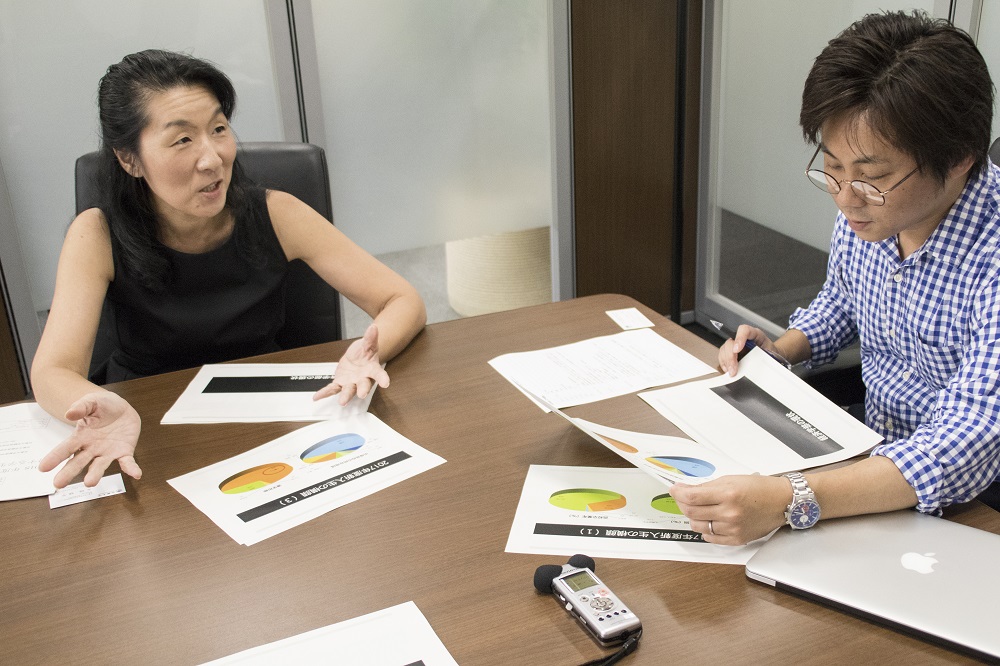
Introductory Seminar is a course set for period 1 in the first semester of the first year. From the standpoint of the Director of the International Student Support Room, it is worth watching students attending the period 1 class. Of course, the students do not look happy attending period 1 exercises (laugh). But they do not look like they are suffering either. Sharing somewhat difficult experiences, I think, is helpful in making friends.
You have collected a substantial amount of data. Does it reveal any notable trend, such as an impact on the subsequent acquisition of credits?
The data shows significant differences in the number of credits students earn as they advance through school years, depending on whether they are successful or not in Introductory Seminar.
What are the factors behind some students not actively working in the class?
One factor may be the groundless self-esteem or self-confidence with which they think it will all come out all right. I sense that they think positively in a weird way. For instance, there are now and then students who vigorously hunt for jobs even though they have obtained only about a half of the credits required for graduation. I don’t know whether they are aware of their credits or not.
Is there any key point for avoiding having the subject become a facade?
The teachers in charge have opportunities for collective discussions. As I said earlier, a mid-semester debriefing session is held in May or June. Additionally, a review meeting is held before or after summer vacation. All teachers involved present their reports about their respective lecture content. Teachers in the position of Professor or Associate Professor compile the reports every year. Reports, each written on two A4 sheets or so, are retained, describing each teacher’s lecture content. Retained reports enable us to review the course later. For instance, imagine that a report states that sending an email to a student to encourage attendance was effective. Discussing the statement again in a debriefing session enabled the teachers to deliberate on establishing the action as a norm in the following academic year. This story provides a good example of how to prevent the course from losing substance.
What are you working on currently?
In a project I’m involved in as the Director of the International Student Support Room, I have collected a four-year set of questionnaires about student life completed by undergraduate students after enrollment. I’m planning to analyze the relevance of student life as a cause of academic underachievement, such as insufficient credits earned and failure to achieve graduation in four years. If potential causal factors are identified, there is one important thing to do. That is to begin interventions with students highly likely to underachieve on various levels and at the earliest possible point. The purpose of this is to prevent them from falling into the underachievement process and help them be promoted and achieve graduation in four years.

(Recording day: July 13, 2018)
List of Interviews


